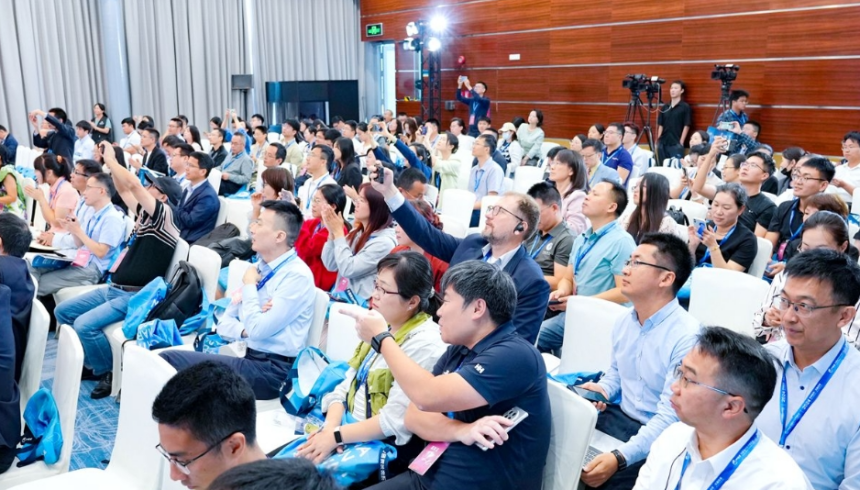Over 300 global experts, including scientists, academicians, and business leaders, gathered in Shenzhen for the International Conference on Deep Sea Science and Technology and the 2024 COMRA Annual Science Meeting. Held at the Shenzhen Convention and Exhibition Center in Futian District, the event focuses on sustainable methods for deep-sea exploration, conservation of fragile marine ecosystems, and responsible resource utilization.
With a theme of “Protecting the Deep Ocean Environment and Utilizing Resources Responsibly,” the three-day event aims to foster collaboration on ocean sciences and establish standards for sustainable practices in deep-sea industries. As a part of Shenzhen’s China Marine Economy Expo, the conference has attracted representatives from 130 organizations across 12 countries, including United Nations agencies.
At the opening ceremony, Sun Shuxian, deputy minister of the Ministry of Natural Resources, emphasized the importance of ocean conservation for global sustainability. In his speech, Sun highlighted four areas for development: advancing deep-sea research, fostering new opportunities in the blue economy, protecting the marine environment, and cultivating a skilled workforce for marine industries. These steps, he noted, are crucial for balancing economic goals with environmental protection.
Deng Renjie, vice general manager of China Merchants Group, underscored the company’s contributions to deep-sea technology. He discussed China Merchants Group’s work in developing environmentally-friendly practices and minimizing the risks of deep-sea resource extraction.
Shenzhen Deputy Mayor Dai Jintao spoke on the city’s plans for its marine economy, noting the strategic importance of Shenzhen’s 260-kilometer coastline and 2,030 square kilometers of marine area. He shared that Shenzhen has invested in research, industrial development, and talent cultivation for the marine sector, with the goal of becoming a leading city in ocean-based economic growth and environmental stewardship.
By the end of the third quarter of 2024, Shenzhen had reached an estimated marine GDP of 265.45 billion yuan, driven by nearly 30,000 marine-focused companies, including major firms like China Merchants Group and CNOOC Shenzhen.
Zhang Zhanhai, chairman of the China Ocean Mineral Resources Research and Development Association, noted the significance of international collaboration in deep-sea science. This event, he said, provides a platform for exchanging knowledge on sustainable practices, technological innovation, and responsible resource use.
The conference also featured a video message from Peter Thomson, the United Nations Secretary-General’s Special Envoy for Ocean Affairs. Thomson highlighted the importance of healthy oceans for sustainable human development and urged participants to support innovative blue economy models. He praised China’s active participation in the United Nations’ 2030 Sustainable Development Goals, particularly those related to oceans.
Yutaka Michida, chairperson of UNESCO’s Intergovernmental Oceanographic Commission, expressed optimism that the conference would increase public awareness of ocean conservation and promote concrete actions to protect marine ecosystems.
Lin Jian, a distinguished ocean researcher and director of the Advanced Institute for Ocean Research at the Southern University of Science and Technology, called for science-based solutions and increased investment in ocean research. Lin’s recommendations included enhancing deep-sea knowledge, advocating for responsible resource use, protecting marine biodiversity, and promoting international partnerships to advance deep-sea research.
This inaugural deep-sea conference in Shenzhen aspires to establish the city as a prominent global hub for marine research and technology. Organizers hope the event will strengthen both domestic and international collaboration in marine science, provide insights into sustainable practices, and position Shenzhen as a model city for ocean-based economic development.

